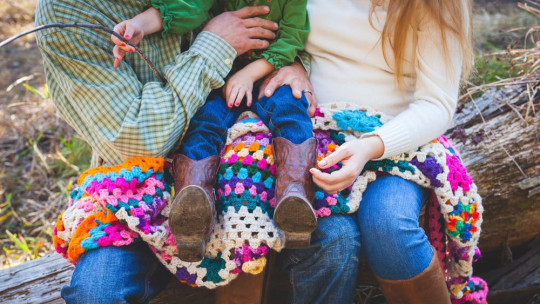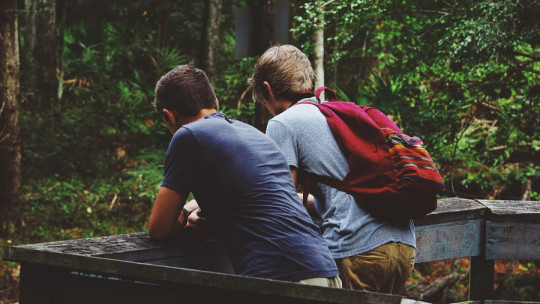Sexuality during adolescence is a topic that is not given due importance. However, so that girls and boys can have adequate development and an understanding of their own personal development that allows them to see how their sexuality is involved in every aspect of their lives, it is necessary to take this issue seriously.
Ignorance of this sexual development can interfere with the process of structuring their identity so that it becomes well integrated, and makes it difficult for adolescents to be prepared for their future as adults with a life project constituted with values, to direct decisions, desires. , dreams and achievements constituted with these values. In short, information and education about sexuality allows for healthy and balanced development in every area of young people’s lives.
In this article We will see what sexuality is and what aspects are involved in this stage of adolescence and we will make a brief description of the main issues that adolescents experience early in their sexuality.
What do we understand by sexuality?
Sexuality is an inherent part of being human, it is a dimension that involves women and men, which leads us to contact our emotions. It disrupts culture and transforms it; It allows us to feel, touch, contact, and brings us closer to others to promote harmony from the inside out, giving meaning to our dreams, to our life.
The discourse of sexuality is invaded by many colors and nuances, ideas, beliefs, which are taken or not taken into action, which are lived with guilt or pleasure Currently, in Mexican society, where the absence of formal sexuality education is clear, entry to projects that undermine sexual life is facilitated; This is why the involvement of health and education professionals becomes an urgent necessity.

Problems derived from not educating about sexuality in adolescence
By not being aware of our experiences, attitudes and values about sexuality, we facilitate blockages such as desensitization, which makes it difficult to live surrender.
On the other hand, when we do not love ourselves, we do not feel worthy of being loved freely. And when this happens in adolescents, they They develop an idea of themselves according to which to be loved they have to do things to please others or someone with whom they want to bond (through friendship or courtship), and they think that they must put aside their sensations, values, rhythms, desires, and actions that are natural to them. Because of this, they develop relationships where sex, love and their eroticism begin to become dehumanized, making it difficult to experience sexuality through the need to look outside for what adolescents do not develop in their self-knowledge.
The roles in which adolescents develop with their own experiences in their sexuality, They cover the aspects of seduction, love and eroticism Boys begin to feel seduced by their own body and find a taste for photographing their body and sharing those images on social networks to experience their eroticism as part of their new identity as adolescents.
On the other hand, when they feel shame, shame or guilt for recognizing their eroticism, they avoid exposing themselves to cameras or being seen in front of groups. The erotic experience drives you to grow and be reborn by sharing your existence on social networks or in social coexistence with friends, and this gives colors to your way of experiencing life; This way they can recognize their desires towards other people, their will is strengthened, and with their friends they become a whole. In this way, everyday life takes a backseat and love appears, which is a state of being and manifests itself as desiring, longing, permanently tending towards something and seek its expansion.
When adolescents experience their sexuality as a problem (they feel that they are not physically pleasant, they experience guilt because they have suffered rejection at school by peers, or because of experiences at home that caused them fear, sadness, disappointment or lack of love) their entire development is affected, also that of his sexuality as part of his identity on the path of maturation and formation as a future adult.
Teenage pregnancy
Boys or girls who experience sexual relations in adolescence generally do not take care to use some type of protection to avoid the risk of experiencing pregnancy. If parents do not pay attention to guide and provide the necessary information or actions to promote the healthy development of boys and girls, the risk of unwanted pregnancies tends to increase
Some young people become pregnant due to psychological needs, such as feeling unloved by their parents, by being neglected at home, and they try to prove their maturity to their parents or try to place themselves in an equal position with their mothers. Sometimes they consider that the baby can give them unconditional love that they feel is missing in their lives
Of course, in many other cases, teenagers become pregnant accidentally.
And it must also be taken into account that in general, the earlier they begin sexual activity, the longer it takes them to seek help to avoid conception or pregnancy with contraceptives.
Some adolescents do not know which contraceptives are the most effective and are not informed about sexually transmitted diseases.
Now, most young people know basic aspects related to health, such as that anyone can become infected with sexually transmitted diseases, and that the consequences can be serious. But They often refuse to seek help because they fear that their parents will find out and be embarrassed or they worry that their colleagues know.
The most common diseases in adolescents are:
Generally, boys They are more exposed to contracting these diseases during adolescence because they have little information about their bodies and about sexual education If we add to this personal development problems, these risks increase.









